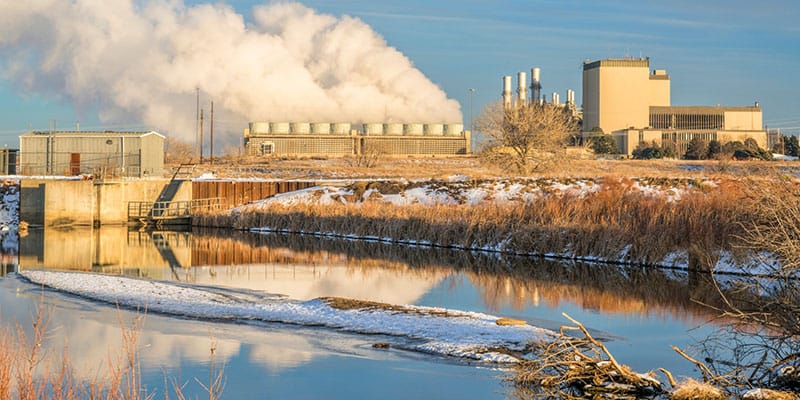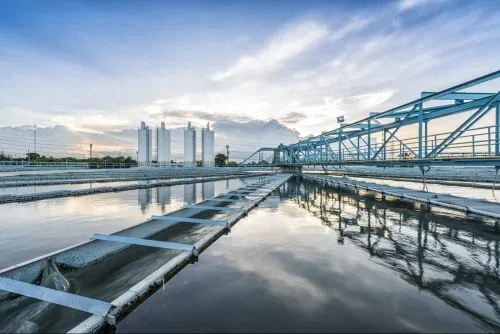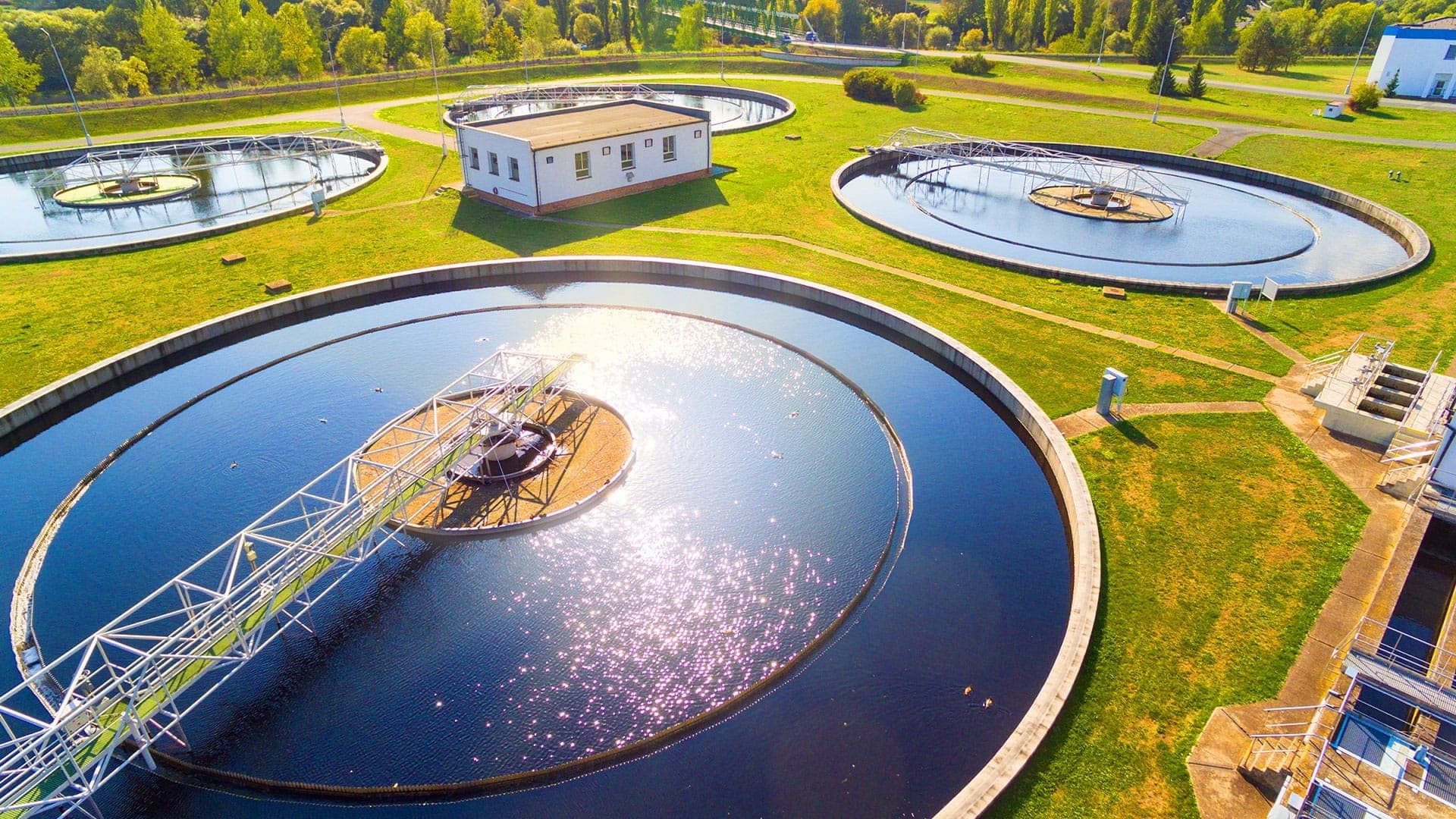Industrial Wastewater Treatment: Sustainable Solutions for the Water Industry
Industrial wastewater treatment is a vital process to minimize the environmental impacts of industrial activities. The wastewater generated from manufacturing and processing industries often contains pollutants such as chemicals, heavy metals, organic matter, and suspended solids. Without proper treatment, these contaminants can pollute water bodies, harm ecosystems, and create health hazards. Sustainable wastewater treatment solutions are essential for industries to meet environmental regulations and optimize water use.

Challenges in Industrial Wastewater Treatment
Industrial wastewater varies depending on the industry and processes involved, which makes it complex to treat. Below are some key challenges industries face:
Chemical Contaminants
Industries like pharmaceuticals, chemicals, and textiles generate wastewater with hazardous chemicals such as heavy metals, volatile organic compounds (VOCs), and solvents. These contaminants require specialized treatment methods to prevent environmental pollution.
High Organic Load
Food and beverage industries, as well as agriculture, produce wastewater high in organic matter, resulting in high Biological Oxygen Demand (BOD) and Chemical Oxygen Demand (COD). This can deplete oxygen in water bodies if discharged untreated, causing ecological damage.
Suspended Solids and Oils
Heavy industries, such as oil and gas production, generate wastewater with suspended solids and oils, which can block waterways and damage aquatic ecosystems if not properly removed.
Wastewater Composition Variability
Industrial wastewater composition can vary based on production cycles and the materials used, making it difficult to apply a uniform treatment solution. Flexible treatment systems are required to handle these variations efficiently.
Water Scarcity and Resource Recovery
In regions facing water scarcity, industries are increasingly pressured to reduce water consumption and recycle treated wastewater. Resource recovery from wastewater, such as energy, nutrients, or materials, also contributes to more sustainable industrial operations.

Sustainable Wastewater Treatment Technologies
Industries are adopting advanced and sustainable wastewater treatment technologies to address these challenges while optimizing resource use.
Physical Treatment Methods
Physical processes remove large particles, oils, and greases from wastewater. Screening and sedimentation remove large solids, while filtration systems, such as sand or membrane filtration, effectively remove finer particles.
Biological Treatment
Biological treatment uses microorganisms to degrade organic pollutants, making it effective for wastewater with high organic loads.
Aerobic Treatment involves microorganisms breaking down organic matter with oxygen. Activated sludge systems and aerated lagoons are common methods, effective in reducing BOD and COD.
Anaerobic Digestion is a sustainable option for treating wastewater from industries with high organic content. This method uses bacteria to break down organic matter without oxygen, producing biogas as a renewable energy source.
Chemical Treatment
Coagulation and Flocculation involve adding chemicals to wastewater, causing particles to clump together for easier removal. Neutralization adjusts the pH of wastewater, often required in industries producing acidic or alkaline effluents. Oxidation techniques, such as ozone treatment or advanced oxidation processes (AOPs), break down complex organic pollutants, making them less harmful.

Advanced Treatment Technologies
Membrane Bioreactors (MBRs) combine biological treatment with membrane filtration, providing high-quality treated water that can be reused. MBR systems are especially effective in industries with high organic loads.
Zero-Liquid Discharge (ZLD) is a process where nearly all the water in wastewater is recovered, leaving behind solid waste. This method is ideal for industries operating in water-scarce regions or facing stringent discharge regulations.
Resource Recovery Technologies such as anaerobic digestion and waste-to-energy allow industries to recover valuable byproducts from wastewater, including nutrients, minerals, and biogas, contributing to a circular economy.
Water Reuse and Recycling
Water reuse and recycling are essential in industrial wastewater management, particularly in regions experiencing water shortages. Treated wastewater can be reused in industrial processes, including cleaning, cooling systems, and boiler feed water. Recycling water within closed-loop systems can significantly reduce water consumption and minimize wastewater discharge.
Regulatory Compliance and Sustainability
Industries are increasingly held accountable for their environmental impacts, especially when it comes to wastewater management. Regulatory bodies at the local, national, and international levels enforce stringent standards to ensure that industrial wastewater is treated adequately before being discharged into the environment. These regulations are designed to protect ecosystems, human health, and water resources from the harmful effects of untreated or improperly treated wastewater.
Failure to comply with these regulatory standards can result in severe consequences for industries. Non-compliance can lead to hefty fines, suspension of operations, or even closure in extreme cases. Beyond the financial implications, industries may also face legal action and long-term reputational damage, which can erode trust among stakeholders, including customers, investors, and local communities. A company known for environmental violations may struggle to attract business partners or expand into new markets due to the negative associations with its practices.
To avoid such risks, many industries are now turning to sustainable wastewater treatment technologies as a proactive approach to compliance. By integrating advanced treatment systems like membrane bioreactors (MBRs), zero-liquid discharge (ZLD), and resource recovery processes, industries can meet and often exceed regulatory requirements. These systems are designed not only to remove harmful pollutants but also to reduce water consumption, recycle treated water, and recover valuable byproducts such as biogas or nutrients.
Moreover, adopting sustainable wastewater management practices plays a key role in fulfilling a company’s corporate social responsibility (CSR) goals. CSR refers to a company’s commitment to operating in an economically, socially, and environmentally sustainable manner. For industries, this involves minimizing their environmental footprint, conserving resources, and engaging in ethical business practices. By implementing eco-friendly wastewater treatment systems, industries can demonstrate their commitment to environmental stewardship and contribute to broader sustainability efforts.
Conclusion
Industrial wastewater treatment plays a crucial role in sustainable industrial operations. As industries face increasing pressure to minimize their environmental footprint, advanced treatment technologies such as anaerobic digestion, membrane bioreactors, and zero-liquid discharge systems offer efficient solutions. These technologies not only reduce the environmental impact of wastewater but also help recover valuable resources such as water, energy, and nutrients.
By adopting sustainable wastewater treatment practices, industries can meet regulatory requirements, minimize water consumption, and contribute to a more resource-efficient economy. In the long term, these solutions lead to both economic and environmental benefits, ensuring that industrial growth remains aligned with ecological sustainability goals.